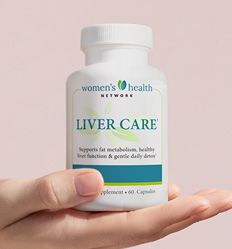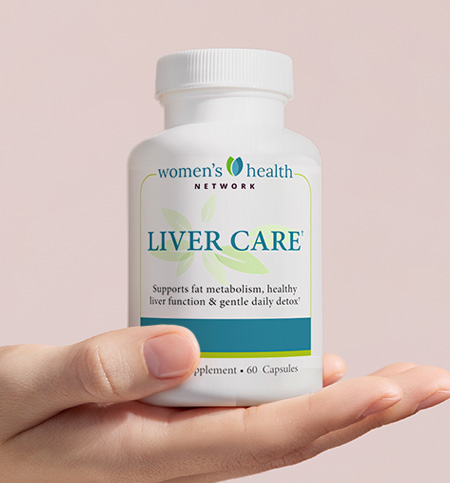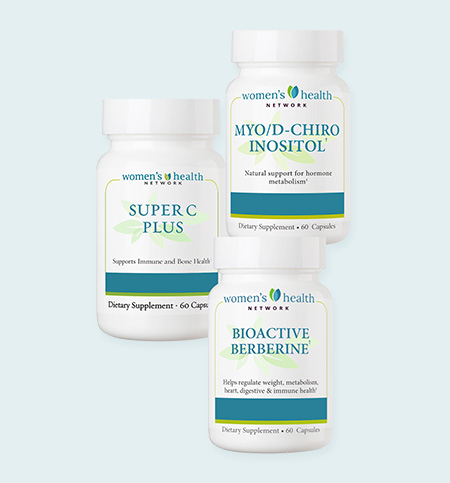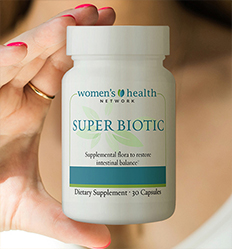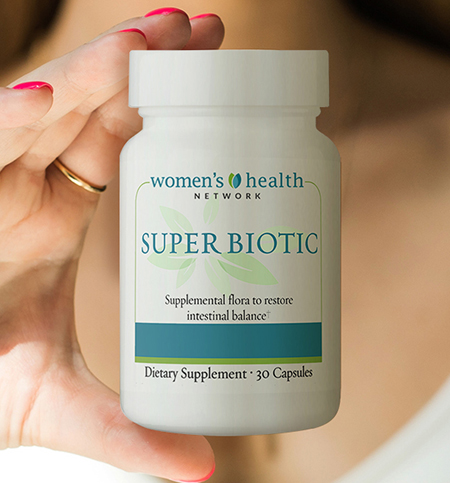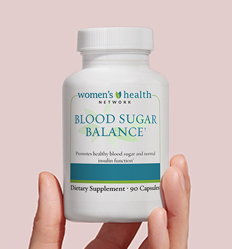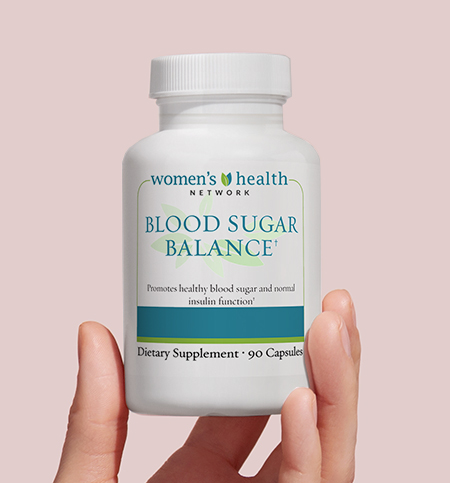Authored by Jacqueline Tourville, WHN Managing Editor
You probably already know that processed foods are missing essential nutrients like fiber, healthy fats, and key vitamins and minerals. But the real danger isn’t just in what these foods lack — it’s in what they contain.
Processed and ultra-processed foods are packed with additives like artificial preservatives, colorings, synthetic fillers, flavorings, highly refined sweeteners, emulsifiers and binders. While these ingredients may extend shelf life and make processed foods taste and look better, your body doesn’t recognize them as food. It sees them for what they truly are: toxins.
Here’s how processed foods are quietly sabotaging your health — one system at a time.
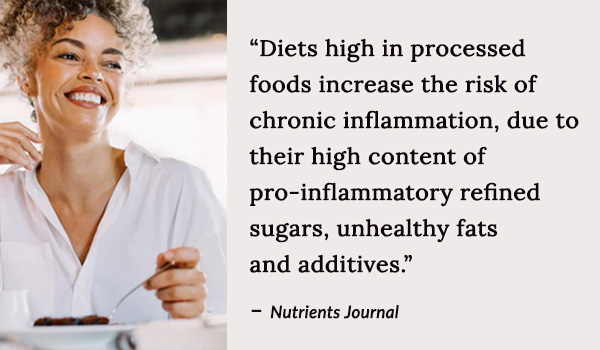
Processed foods overload your liver
When you eat processed foods, your liver — the body’s primary detox organ — has to work overtime to trap, break down, and eliminate harmful compounds. With the average American getting nearly 60% of their daily calories from processed foods, this means your liver is under constant pressure. And that’s before factoring in the additional burden of detoxing everything else coming into your system, including medications, alcohol, stress, hormonal byproducts, and environmental toxins.
Over time, this toxic overload can impair normal liver function, triggering inflammation in the liver itself. Non-alcoholic fatty liver disease (NAFLD), a condition now affecting millions of women, is directly linked to diets heavy in processed foods.
And an inflamed liver doesn’t suffer in silence. It releases inflammatory chemicals called cytokines into your bloodstream — spreading low-grade, chronic inflammation throughout your entire body, damaging tissues and organs far beyond the liver.
But the danger of processed food additives doesn’t stop there.
Processed foods suppress your natural GLP-1
Processed foods can interfere with your body’s natural appetite and blood sugar regulation. One way they do this is by suppressing GLP-1 (glucagon-like peptide-1), a hormone released in the gut that helps control blood sugar, promotes satiety and supports healthy insulin function.
When you eat whole, nutrient-rich foods, GLP-1 signals to your brain that you’re full, helps stabilize blood sugar and supports metabolic balance. But highly processed foods — full of refined sugars, artificial sweeteners and chemical additives — can blunt this natural response. Over time, this may lead to overeating, blood sugar swings, increased fat storage, and a higher risk of type 2 diabetes and metabolic syndrome.
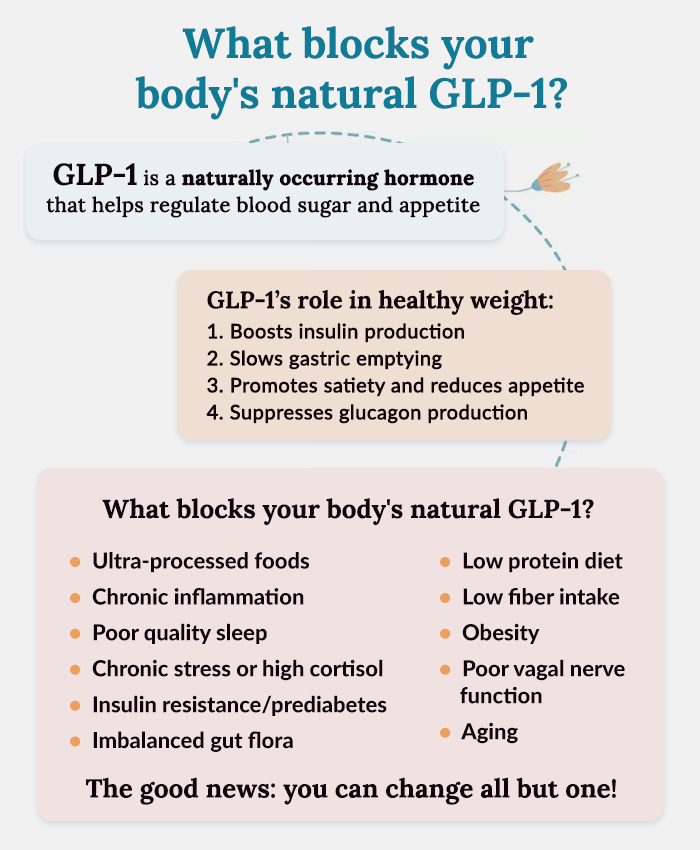
In other words, processed foods don’t just inflame your body — they can hijack the very hormones that keep your appetite and metabolism in check. Choosing whole, minimally processed foods helps restore natural GLP-1 function, making it easier to manage weight, blood sugar and overall metabolic health.
Processed foods damage your gut
Preservatives and artificial sweeteners disrupt the delicate balance of gut bacteria — the “good” and “bad” microbes that work together to keep your digestive system healthy. When that balance is thrown off, local inflammation often follows, leading to uncomfortable symptoms like bloating, gas, or irregular digestion. But the effects don’t stop there. Inflammation that begins in the gut can eventually spread elsewhere in the body, contributing to health issues including acne, eczema, and food sensitivities and allergies.
Over time, diets high in processed foods may degrade the gut lining, allowing harmful substances — bacteria, toxins and undigested food — to pass into your bloodstream. This is known as leaky gut syndrome, a major contributor to chronic inflammation, poor nutrient absorption and and a weakened immune system. Because roughly 80% of your immune cells reside in the gut, an unhealthy microbiome can make it harder for your body to fight infections and keep inflammation in check.
Processed foods cause blood sugar spikes
Many processed foods are full of refined sugars, which destabilize your body’s ability to maintain its blood sugar balance, triggering yet another inflammatory response. This rollercoaster of blood sugar highs and lows puts stress on the body and contributes to chronic inflammation-related conditions like type 2 diabetes, heart disease and cancers.
Processed foods inflame your blood vessels
Some food additives damage endothelial cells — the delicate lining of your blood vessels and digestive tract. This is a major contributor to vascular inflammation, which underlies heart disease and stroke.
Chronic disease has exploded — and it’s no coincidence
Sure, when consumed in small amounts on rare occasions, processed food additives probably won’t have much impact. But most of us are eating so many processed foods that inflammation triggered by toxic additives isn’t occasional — it’s happening every single day, meal after meal, snack after snack.
So is it any wonder that at the same time that processed food intake has taken over the typical American diet, we’re also seeing a dramatic rise in chronic, inflammation-driven conditions across all age groups?
Here is a list of diseases related to chronic inflammation:
- Cardiovascular disease
- Type 2 diabetes
- Autoimmune disorders
- Asthma and COPD
- Inflammatory bowel diseases like Crohn’s and ulcerative colitis
- Certain cancers — and how aggressively they progress
- Alzheimer’s and Parkinson’s
- Obesity
- Chronic fatigue and fibromyalgia
- Arthritis and joint disorders
- Psoriasis and other skin issues
- Gum disease
- Liver and kidney disease
We think the link between diet and disease is clear. Let’s stop ignoring it.
The good news? You have the power to change what’s on your plate
Small, daily changes can make a big difference. The Golden Rule: prioritize whole, unprocessed foods — fruits, vegetables, healthy proteins and fats, and whole grains — and reduce your intake of processed convenience foods. For an easy way to transform your eating habits, start by following a Mediterranean style diet. Over time, not only will inflammation levels start to drop, but you’ll likely notice more energy, better digestion, improved mood and less bloating too.
Ready to learn more about how and why to remove processed foods from your diet? Please read our full article, Think you know the dangers of processed foods? Prepare to be surprised, by Women’s Health Network expert, Caroline Morin, NBC-HWC.







